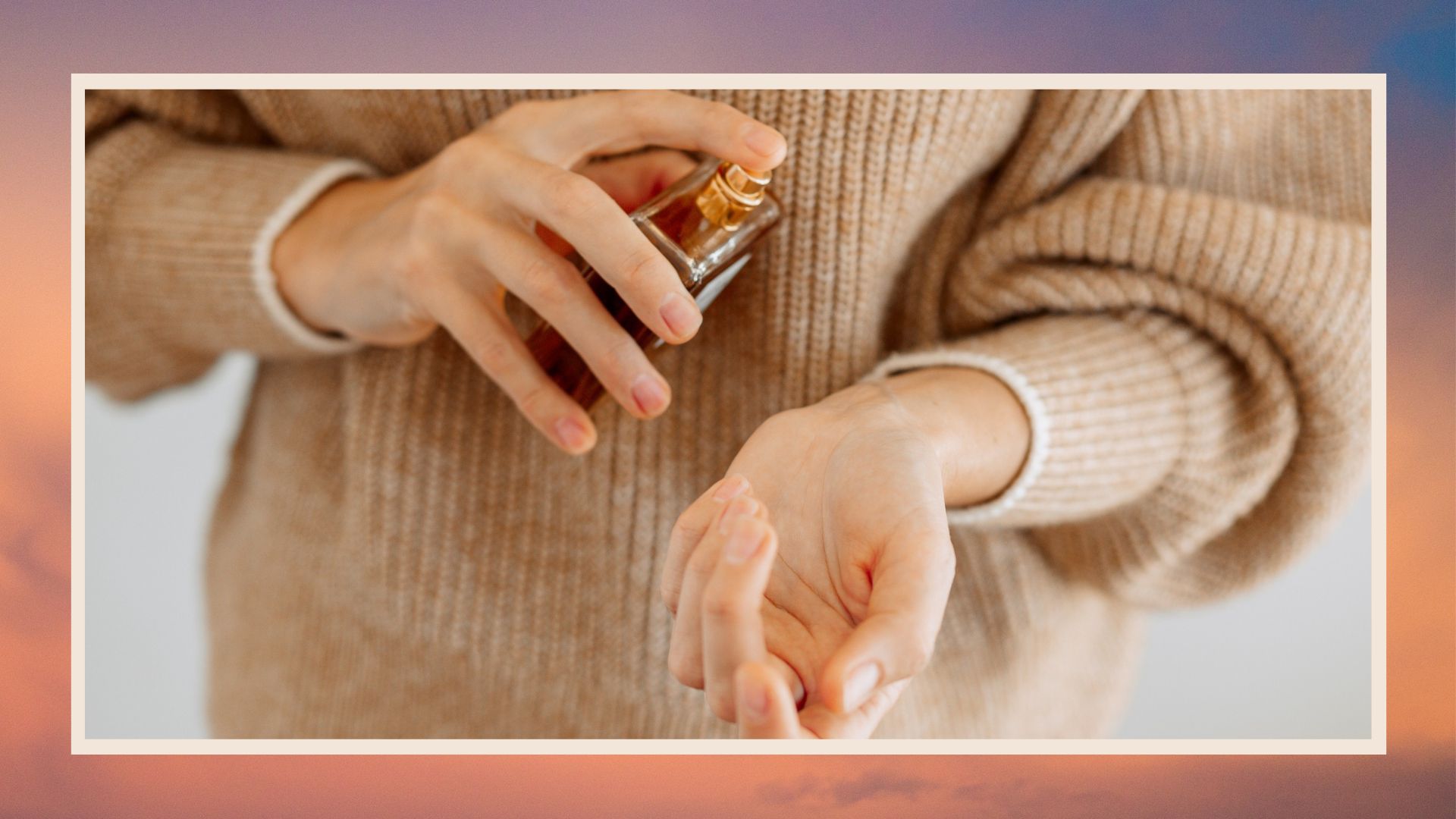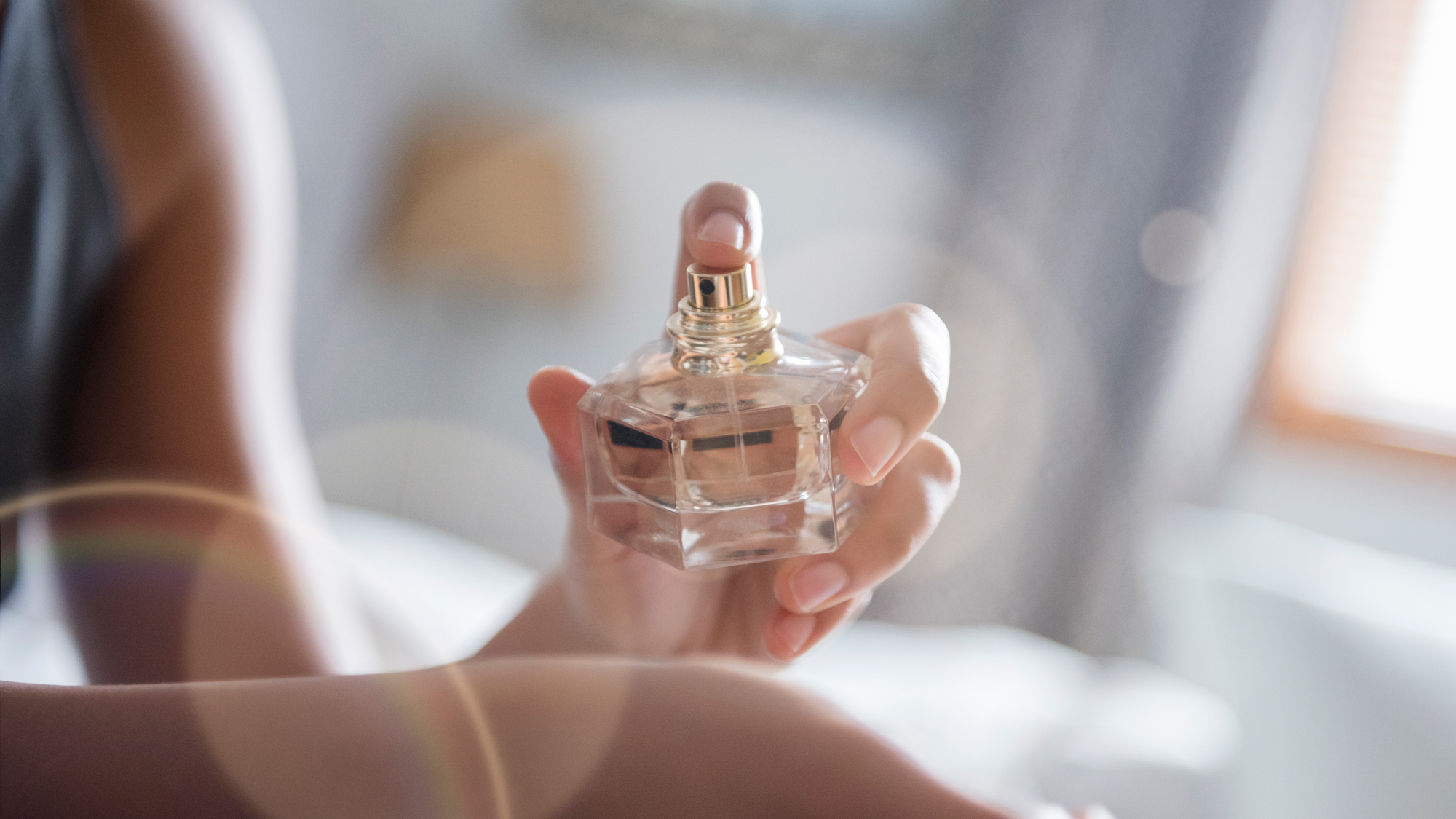Eau de Parfum vs toilette vs body mist: what’s the difference in fragrances?
We explain the difference between the different types of fragrances, including parfum vs toilette, as well as body mist and more


Having a signature scent can help you go out in the world with confidence, leaving a memorable impression on all those you cross paths with. But sorting through the differences between perfume vs toilette, and all the other different fragrances, to achieve your perfect scent can be complicated. After all, who actually knows the difference?
When you head down the fragrance aisle, you're going to see a few different options, including body mist, but the main battle is eau de parfum vs toilette. So what's the difference, and how do you know which one to pick? The best perfumes for women often have a whole range of options, so it can be tricky to know which one is right for you.
It may feel like a simple choice—after all, they all make you smell good right? But there are some important points of difference between parfum vs toilette, vs body mist. Our explainer will help you make the right choice.
Body mist vs. eau de parfum vs toilette vs. perfume—what are the differences?
Before you can understand the differences between these different types of fragrance, it's important to understand the idea of perfume notes.
Generally, perfumes are made up of three 'notes', referring to a distinct, identifiable smell, which can be broken down into the following:
- Top notes—These are the first scents that will hit your nose when you apply a fragrance. These have a fast evaporation point, and will begin to fade after the first 15 minutes or so of application. The spicier or more unusual notes will often be included in this phase, so that they don't hang around for long.
- Heart notes—This is the real core of the scent. These smells appear three to four hours after application in most perfumes, and they'll usually include scents with the defining qualities of the product in question. If, for instance, your perfume is known for its citrus scent, this is where those smells will come in.
- Base notes—These notes stick around longer than the rest and are often referred to as a fragrance's 'dry down'. They'll absorb into the skin and still be present up to eight hours later in perfumes. Many fragrances layer in foundation notes like woodiness into the base.
All of this scientific understanding of layers of scents means that fragrances are quite fragile. Interactions with the chemicals in the wearer's skin can change the scent, which is why your favorite fragrance can smell completely different on your skin compared with your BFF’s.

Knowing what you now know about the layering of fragrances and how long the scent they provide lasts, understanding the differences between perfume, body mist, Eau de Toilette, and Eau de Parfum is much easier. Basically, these terms denote the different levels of concentration of fragrance in the substance through which it is delivered.
Generally speaking, the fragrance is typically suspended in either oil or alcohol. The fragrance can exist in different levels of concentration (meaning there is more or less of it within the oil or alcohol). The higher the concentration, the more potent the scent. More importantly, the higher the concentration, the longer the scent will last on the wearer.
While the concentrations will vary from brand to brand, the most important thing to understand is that body oils are the most concentrated, while body mists are the least. Here are some typical concentration levels for each of the types of fragrance applications:
- Body mist—The lightest in concentration of the options, body mist is usually used in conjunction with other products from the same scent family. It has a fragrance concentration of only 3-5% in alcohol. It evaporates quickly and provides a burst of freshness that usually lasts only an hour or two, and is therefore the cheapest option of the lot.
- Eau de Toilette—A middle ground between perfume and body mist, eau de toilette (taken from the French for “getting ready”, it’s named for its usual application immediately after a bath or shower) has a fragrance concentration of around 7-12% in alcohol. It can last around four to five hours, so a little longer than body mist.
- Eau de Parfum—Designed specifically with complex, long-lasting scents in mind, these are often more expensive than the less concentrated options, but they are also going to provide a much richer fragrance. With a concentration of 12-20% suspended in alcohol, you can expect an eau de parfum to last six to eight hours.
- Perfume—The longest-lasting of the fragrance options, technically perfume is a separate entity in its own right, despite us often using it to refer to all scents broadly. It refers to a fragrance concentration of 20-30%. These fragrances can last for a full day, depending on the scents in question. While their longevity is a plus, some wearers can find the scents overwhelming.
How to choose the right fragrance type for you
In conclusion, the different fragrance options vary in their concentration and which perfume lasts the longest, meaning that that is one of the main things to consider when picking between the four of them. Like many health and beauty products, the right one depends on your goals and day-to-day activities and budget.
For example, if you just want a quick boost of freshness while you're out running errands, a light body mist may just do the trick. If you're getting ready for a long day at work but do not want to overwhelm your colleagues with a heavy fragrance, an Eau de Toilette may be most appropriate. If you are planning an evening out and want a complex, long-lasting scent to last the whole day, an Eau de Parfum or perfume will help you achieve your goals.
Making a fragrance selection is two-fold. Decide how intense you want the scent to be and how long you want it to last. Once you know those two components, picking the right type of fragrance is much easier.
Then comes the fun part—choosing the scent you actually prefer. Some generally opt for the best floral perfumes, while others go for more vanilla-type perfumes.
Lucy is a beauty journalist who has written for titles including Marie Claire, Cosmopolitan, OK!, woman&home and Women's Health, as well as regularly contributing to My Imperfect Life. Her work covers everything from skin and haircare tips to trying and testing the latest beauty launches, and interviewing celebrities and experts. A certified dog person, her other interests include mental wellbeing, books, piña coladas and not getting caught in the rain.